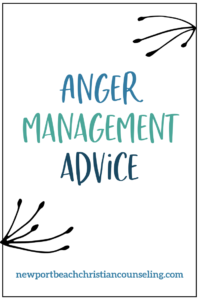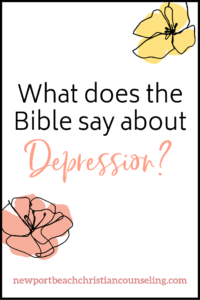How to Stop Worrying in a World Filled with Anxiety
 Lisa began her day by announcing, “Good Morning!” in a groggy, insincere voice. She tossed and turned all night over her father’s unexpected diagnosis, not knowing how to stop worrying about what might happen. Her anxiety builds and sweat beads on her upper lip as she mentally reviews her to-do list.
Lisa began her day by announcing, “Good Morning!” in a groggy, insincere voice. She tossed and turned all night over her father’s unexpected diagnosis, not knowing how to stop worrying about what might happen. Her anxiety builds and sweat beads on her upper lip as she mentally reviews her to-do list.
No REM sleep and too many alarm snoozes mean no quiet time. She expects a pumpkin spice latte with an extra shot of espresso to replace her spiritual need. She tries to catch the weather on the local news only to be bombarded with a crisis overseas or a brutal murder.
Quickly, she turns off the television to spare what is left of her children’s innocence as they get ready for school. She grabs a protein bar on the way out the door and dreads the traffic she will encounter on the way to work due to her late start.
Her negative internal dialog begins. “There is so much to get done and no time. I can’t find peace. This world is crazy. Does everyone feel overwhelmed? This is too much! Do I have an anxiety disorder or is it my hormones? Why can’t I figure out how to stop worrying? Is it time to get counseling?”
Everyone has different ways of coping with anxiety in their lives and figuring out how to stop worrying. Lisa is unsure if her anxiety is normal anxiety or if maybe it has crossed over into a general anxiety disorder. She has gone from having a few sleepless nights to many over the course of the last month. She is premenopausal, so she has blamed her anxiety and sweating on her hormones. Maybe it is just hormones, but maybe it’s General Anxiety Disorder. Newport Beach Christian Counseling can help you explore these concerns and guide you in understanding whether your anxiety is something temporary or if it requires professional attention and support.
Symptoms of General Anxiety Disorder (GAD)
 The National Institute of Mental Health describes the symptoms of General Anxiety Disorder as:
The National Institute of Mental Health describes the symptoms of General Anxiety Disorder as:
- Feeling restless, wound-up, or on-edge
- Being easily fatigued
- Having difficulty concentrating; mind going blank
- Being irritable
- Having muscle tension
- Difficulty controlling feelings of worry
- Having sleep problems, such as difficulty falling or staying asleep, restlessness, or unsatisfying sleep
Other symptoms of anxiety may include:
- Headaches
- Muscle tension
- Insomnia
- Depression
- Social isolation
Since Lisa exhibits several of the symptoms of General Anxiety Disorder, it would be wise for her to schedule an appointment with her physician. In order to properly diagnose Lisa, the physician will follow these steps:
- Do a physical exam to look for signs that anxiety might be linked to medications or an underlying medical condition
- Order blood or urine tests or other tests, if a medical condition is suspected
- Ask detailed questions about symptoms and medical history
- Use psychological questionnaires to help determine a diagnosis
- Use the criteria listed in the Diagnostic and Statistical Manual of Mental Disorders (DSM-5), published by the American Psychiatric Association
As a Christian, Lisa has access to more than physicians. What could she do immediately to find some relief from her anxiety? She could pray. She could open her Bible to 1 Peter 5:6-7 and find hope from the Good Counselor.
Therefore humble yourselves under the mighty hand of God, that He may exalt you at the proper time, casting all your anxiety on Him, because He cares for you. – 1 Peter 5:6-7
To cast means to throw off. Lisa needs to throw off her anxiety. The anxiety is a tool of her adversary. Peter instructs further in verses 8-10.
Be of sober spirit, be on the alert. Your adversary, the devil, prowls around like a roaring lion, seeking someone to devour. But resist him, firm in your faith, knowing that the same experiences of suffering are being accomplished by your brethren who are in the world. After you have suffered for a little while, the God of all grace, who called you to His eternal glory in Christ, will Himself perfect, confirm, strengthen and establish you. – 1 Peter 5:8-10
Lisa could just be struggling and suffering from ordinary complications of life, but if symptoms persist that seem to worsen regardless of prayer and healthy life choices professional treatment is available and should be considered to prevent Lisa from becoming clinically depressed.
How to Stop Worrying: Natural Remedies
There are natural remedies that Lisa can incorporate into her life. First, her physician should rule out any medical causes for anxiety such as her thyroid.
Natural remedies include:
- Prayer
- Casting your cares on the Lord
- Scripture memorization
- A healthy diet free of caffeine and processed foods
- Exercise
- Relaxation
- Massage
- Aromatherapy such as lavender essential oil
- Forest bathing-time spent outdoors
- Time spent with animals
- Writing
- Deep breathing exercises
- Deep sleep
- Chamomile tea
- Green tea
Therefore, since we have so great a cloud of witnesses surrounding us, let us also lay aside every encumbrance and the sin that so easily entangles us, and let us run with endurance the race that is set before us, fixing our eyes on Jesus, the author and perfecter of faith, who for the joy set before Him endured the cross, despising the shame, and has sat down at the right hand of the throne of God. – Hebrews 12:1-2
 Imagine Lisa sipping her chamomile tea before bed as she looks over a Bible verse that she is memorizing. She sets her alarm an hour early so that she can enjoy a healthy breakfast and spend quiet time alone with God.
Imagine Lisa sipping her chamomile tea before bed as she looks over a Bible verse that she is memorizing. She sets her alarm an hour early so that she can enjoy a healthy breakfast and spend quiet time alone with God.
She skips an unhealthy gossip laden lunch with coworkers and has a healthy salad that she brought from home followed by a nice walk on the greenway surrounding the office complex. As she dodges traffic on the way home, she is listening to a Christian podcast or recites that bible verse. She is taking every thought captive.
These are ways that she can put 1 Peter 5:8 into action.
- She’s of sober spirit, alert: No caffeine, no alcohol
- She’s resisting her adversary: No gossip with co-workers
- She’s standing firm in her faith: Prayer, Bible Study, Memorizing God’s Word
Christian Counseling for Anxiety
Still, there are times when normal anxiety crosses over into something more and there is no shame or disgrace in seeking a clinically trained Christian counselor.
Lisa may find that regardless of all of her attempts at conquering her anxiety naturally, medication and psychotherapy is necessary. Medications are diverse and depend on the anxiety disorder.
 Or, Lisa may have another anxiety disorder that can only be diagnosed by a psychiatrist or specialized counselor such as: Post Traumatic Stress Disorder, Social Anxiety Disorder, Panic Disorder, Phobias, or Obsessive Compulsive Disorder.
Or, Lisa may have another anxiety disorder that can only be diagnosed by a psychiatrist or specialized counselor such as: Post Traumatic Stress Disorder, Social Anxiety Disorder, Panic Disorder, Phobias, or Obsessive Compulsive Disorder.
If you’re struggling with how to stop worrying, feel free to contact our office at Newport Beach Christian Counseling today to schedule a counseling appointment. We’re here to support you on your journey toward peace and clarity.
Many times Christians avoid specialized treatment due to the stigma attached to having a mental illness or disorder. Christ died on the Cross so that the children of God could walk in freedom. Shame was nailed to the Cross so that Christians wouldn’t have peace in their eternal salvation. Shame has been exchanged for peace and freedom.
Having an illness is not a sin. The sin is living under daily condemnation that is self-inflicted or assumed due to another person’s faulty belief system. Own the freedom that has already been paid for by Jesus. Lay aside every encumbrance and sin. Run with endurance. Fix your eyes on Jesus, the author, and perfecter of faith.
Photos:
“Stressed Out”, Courtesy of Energepic.com, Pexels.com, CC0 License; “Anxious”, Courtesy of Alexander Dummer, Pexels.com, CC0 License; “Freedom”, Courtesy of Olga, Pexels.com, CC0 License; “Approaching the Tree”, Courtesy of Vlad Bagacian, Pexels.com, CC0 License


 A commitment restricts your freedom. Isn’t that the root of your fear? When you keep your options open, you still feel free. But there’s a problem with this kind of freedom. When we always keep our options open, we never get to enjoy the rewards of commitment – a fulfilling marriage, for example, or a rewarding career.
A commitment restricts your freedom. Isn’t that the root of your fear? When you keep your options open, you still feel free. But there’s a problem with this kind of freedom. When we always keep our options open, we never get to enjoy the rewards of commitment – a fulfilling marriage, for example, or a rewarding career. It’s crucial to listen to your intuition in every relationship, not just romantic ones, but especially before you make a lifetime commitment to someone. A fear of commitment and a sense that something is wrong or unhealthy are two different things.
It’s crucial to listen to your intuition in every relationship, not just romantic ones, but especially before you make a lifetime commitment to someone. A fear of commitment and a sense that something is wrong or unhealthy are two different things. Recognize that regret is part of life. None of us have perfect foresight and unrestricted freedom. Every choice we make to do one thing is a choice not to do something else. None of us will choose perfectly. Our realities will always be limited by our own decisions.
Recognize that regret is part of life. None of us have perfect foresight and unrestricted freedom. Every choice we make to do one thing is a choice not to do something else. None of us will choose perfectly. Our realities will always be limited by our own decisions. Words can be a funny thing. Over time, their meaning can change and new words come into our vernacular. One word you might be hearing more often is “Enneagram.” For those who don’t know what it is, it might sound like a diagram. Others think it’s a medical tool, like a sonogram. Often people hear it and think it’s something scientific that doesn’t apply to them.
Words can be a funny thing. Over time, their meaning can change and new words come into our vernacular. One word you might be hearing more often is “Enneagram.” For those who don’t know what it is, it might sound like a diagram. Others think it’s a medical tool, like a sonogram. Often people hear it and think it’s something scientific that doesn’t apply to them. The exact origins of the Enneagram personality test are a mystery. It’s an ancient method for understanding human personality. This tool has been used by Christians and other religions around the world for centuries.
The exact origins of the Enneagram personality test are a mystery. It’s an ancient method for understanding human personality. This tool has been used by Christians and other religions around the world for centuries. It can be far too easy to take a personality test and never think about it again. We take the test everyone on Facebook is taking, think “hm, that’s interesting,” post our results, and never think about it again. Even with a tool this transformative, this still happens. There is an urge to find out our type without exploring it so we feel like we fit in is for all of us.
It can be far too easy to take a personality test and never think about it again. We take the test everyone on Facebook is taking, think “hm, that’s interesting,” post our results, and never think about it again. Even with a tool this transformative, this still happens. There is an urge to find out our type without exploring it so we feel like we fit in is for all of us. It seems to be especially difficult to find one’s type if someone has been through trauma, chronic stress, or other challenging situations recently. In those situations, we often lean towards a different type. It’s not at all uncommon for someone to type themselves then study more or come out a chaotic life situation to realize they were actually a different type.
It seems to be especially difficult to find one’s type if someone has been through trauma, chronic stress, or other challenging situations recently. In those situations, we often lean towards a different type. It’s not at all uncommon for someone to type themselves then study more or come out a chaotic life situation to realize they were actually a different type. We all go through times of feeling overwhelmed or overworked. Maybe you think being constantly stressed is normal. Or, maybe you feel like it’s a completely negative condition to have that sense of emotional stress.
We all go through times of feeling overwhelmed or overworked. Maybe you think being constantly stressed is normal. Or, maybe you feel like it’s a completely negative condition to have that sense of emotional stress.  So, if your body reacts to significant life events with specific responses, how can you know how much stress is too much? If you’re noticing signs of stress, or if you’re going through a long season of chronic stress, what can you do to cope? Coping with difficult experiences or life changes helps us build resiliency, the ability to emotionally navigate and withstand hard circumstances.
So, if your body reacts to significant life events with specific responses, how can you know how much stress is too much? If you’re noticing signs of stress, or if you’re going through a long season of chronic stress, what can you do to cope? Coping with difficult experiences or life changes helps us build resiliency, the ability to emotionally navigate and withstand hard circumstances. But, if we are exposed to these hormones consistently for long periods of time, we will start to notice negative health effects and signs of stress, such as digestive problems, sleep problems, headaches, flare-ups in chronic conditions, etc. Mental health issues are also common with long-term stress, including depression and anxiety.
But, if we are exposed to these hormones consistently for long periods of time, we will start to notice negative health effects and signs of stress, such as digestive problems, sleep problems, headaches, flare-ups in chronic conditions, etc. Mental health issues are also common with long-term stress, including depression and anxiety. Even if you can’t eliminate the causes of your stress, there is still hope for you. There are resources that can help you live your best life even in the midst of a situation you can’t change. There are measures you can take to care for yourself in the midst of toxic or tragic situations.
Even if you can’t eliminate the causes of your stress, there is still hope for you. There are resources that can help you live your best life even in the midst of a situation you can’t change. There are measures you can take to care for yourself in the midst of toxic or tragic situations. Friendships range from the casual acquaintance or former classmate you bump into or “friend” on social media, to the kinds of friendships where you would entrust your life and the lives of your loved ones into their hands.
Friendships range from the casual acquaintance or former classmate you bump into or “friend” on social media, to the kinds of friendships where you would entrust your life and the lives of your loved ones into their hands. We need the company and connection with other human beings. That’s why one of the worst punishments which can be inflicted upon a person is to place them in solitary confinement.
We need the company and connection with other human beings. That’s why one of the worst punishments which can be inflicted upon a person is to place them in solitary confinement. These two men pledged friendship to one another, so much so that when Jonathan’s father, King Saul, was hunting down and wanting to kill David out of jealousy, Jonathan went out of his way to warn his friend to keep him safe (1 Samuel 20). Some friends will go way out on a limb for us, much more than even our own siblings or parents. Such friends are precious.
These two men pledged friendship to one another, so much so that when Jonathan’s father, King Saul, was hunting down and wanting to kill David out of jealousy, Jonathan went out of his way to warn his friend to keep him safe (1 Samuel 20). Some friends will go way out on a limb for us, much more than even our own siblings or parents. Such friends are precious. A racing heart, gripping fear or a persistent worry cycle that keeps you up at night are just some of anxiety’s many symptoms. The Collins Dictionary defines anxiety as a feeling of nervousness or worry. Health websites explain that anxiety is your body’s natural response to stress: the approach of a predatory animal would have set off an alarm in early man’s body – a rush of adrenaline triggering a “fight-or-flight” response.
A racing heart, gripping fear or a persistent worry cycle that keeps you up at night are just some of anxiety’s many symptoms. The Collins Dictionary defines anxiety as a feeling of nervousness or worry. Health websites explain that anxiety is your body’s natural response to stress: the approach of a predatory animal would have set off an alarm in early man’s body – a rush of adrenaline triggering a “fight-or-flight” response. There are times in life when this command may feel impossible and not calming at all. God says we must stop feeling this way but how do we do that? We could easily end up feeling anxious about our anxiety, striving to be content but still feeling defeated. Reading the verse carefully, we see that the verse gives a better alternative. Instead of feeding fear, we should tell God what we think we need.
There are times in life when this command may feel impossible and not calming at all. God says we must stop feeling this way but how do we do that? We could easily end up feeling anxious about our anxiety, striving to be content but still feeling defeated. Reading the verse carefully, we see that the verse gives a better alternative. Instead of feeding fear, we should tell God what we think we need. Of all the Bible verses about not worrying, this passage from Matthew is probably read most often. It speaks so directly to the physical needs that cause us concern. In John Piper’s post, “Do not be anxious about your life,” he mentions eight reasons why Jesus says his disciples should not be anxious from this passage.
Of all the Bible verses about not worrying, this passage from Matthew is probably read most often. It speaks so directly to the physical needs that cause us concern. In John Piper’s post, “Do not be anxious about your life,” he mentions eight reasons why Jesus says his disciples should not be anxious from this passage. If you struggle with anxiety, know that the Bible offers hope. The verses above, along with many others throughout the Scriptures, are good food for meditation and memorization. When anxiety strikes, bring these passages to mind and rest in the calming assurance that God is in control.
If you struggle with anxiety, know that the Bible offers hope. The verses above, along with many others throughout the Scriptures, are good food for meditation and memorization. When anxiety strikes, bring these passages to mind and rest in the calming assurance that God is in control.  The Bible teaches us that ever since Adam and Eve ate from the forbidden tree, this world has been fundamentally dysfunctional. Sin and death and various kinds of pain and loss are grim realities that remind us that things are not the way they are supposed to be.
The Bible teaches us that ever since Adam and Eve ate from the forbidden tree, this world has been fundamentally dysfunctional. Sin and death and various kinds of pain and loss are grim realities that remind us that things are not the way they are supposed to be. Here we see that happiness in the heart generally produces a happy countenance, but by contrast, grief in the heart can be soul-crushing. This teaches us the truth that a person’s outward behavior is profoundly affected by the state of their heart. Happy heart = happy face. Sad heart = sad face.
Here we see that happiness in the heart generally produces a happy countenance, but by contrast, grief in the heart can be soul-crushing. This teaches us the truth that a person’s outward behavior is profoundly affected by the state of their heart. Happy heart = happy face. Sad heart = sad face. David, the “sweet psalmist of Israel” (2 Samuel 23:1) was no stranger to grief. Many of his Psalms deal with the subject in depth. In Psalm 23, possibly the most well-known of all of the Psalms, David describes the rest and peace that God provides.
David, the “sweet psalmist of Israel” (2 Samuel 23:1) was no stranger to grief. Many of his Psalms deal with the subject in depth. In Psalm 23, possibly the most well-known of all of the Psalms, David describes the rest and peace that God provides. The Apostle Paul wrote these words to the people of the church at Corinth who were apparently suffering from affliction of some kind. Paul tells them that God is the “Father of mercies and God of all comfort,” meaning that He is characterized by compassion and is the source of any comfort that they experience.
The Apostle Paul wrote these words to the people of the church at Corinth who were apparently suffering from affliction of some kind. Paul tells them that God is the “Father of mercies and God of all comfort,” meaning that He is characterized by compassion and is the source of any comfort that they experience. Some people struggle with deep-rooted anger that is just constantly bubbling under the surface and is invisible to the naked eye. However, this is also very damaging to emotional and physical health, and will eventually lead to a massive outburst, or long-term issues, that will fail to be resolved until the underlying anger is taken care of.
Some people struggle with deep-rooted anger that is just constantly bubbling under the surface and is invisible to the naked eye. However, this is also very damaging to emotional and physical health, and will eventually lead to a massive outburst, or long-term issues, that will fail to be resolved until the underlying anger is taken care of. Perhaps you can see that your anger is affecting those closest to you, or that your underlying issues are causing you to burst out in irrational behavior on a regular basis these could be clear indicators that it would be wise to seek out help in this area. If you feel as if your anger is growing uncontrollably, it could certainly be time to reach out to a counselling service for assistance.
Perhaps you can see that your anger is affecting those closest to you, or that your underlying issues are causing you to burst out in irrational behavior on a regular basis these could be clear indicators that it would be wise to seek out help in this area. If you feel as if your anger is growing uncontrollably, it could certainly be time to reach out to a counselling service for assistance. As Christians, we should have our anger in check at all times. Of course, there are things in this world which may cause you to feel “righteous anger” of some kind, but this is not the most common type of rage that people struggle with.
As Christians, we should have our anger in check at all times. Of course, there are things in this world which may cause you to feel “righteous anger” of some kind, but this is not the most common type of rage that people struggle with. One way of tackling anger is to really get to the root of what is triggering such a visceral emotional response. Some triggers may be more avoidable than you think, and may simply require a bit of extra forethought.
One way of tackling anger is to really get to the root of what is triggering such a visceral emotional response. Some triggers may be more avoidable than you think, and may simply require a bit of extra forethought.




